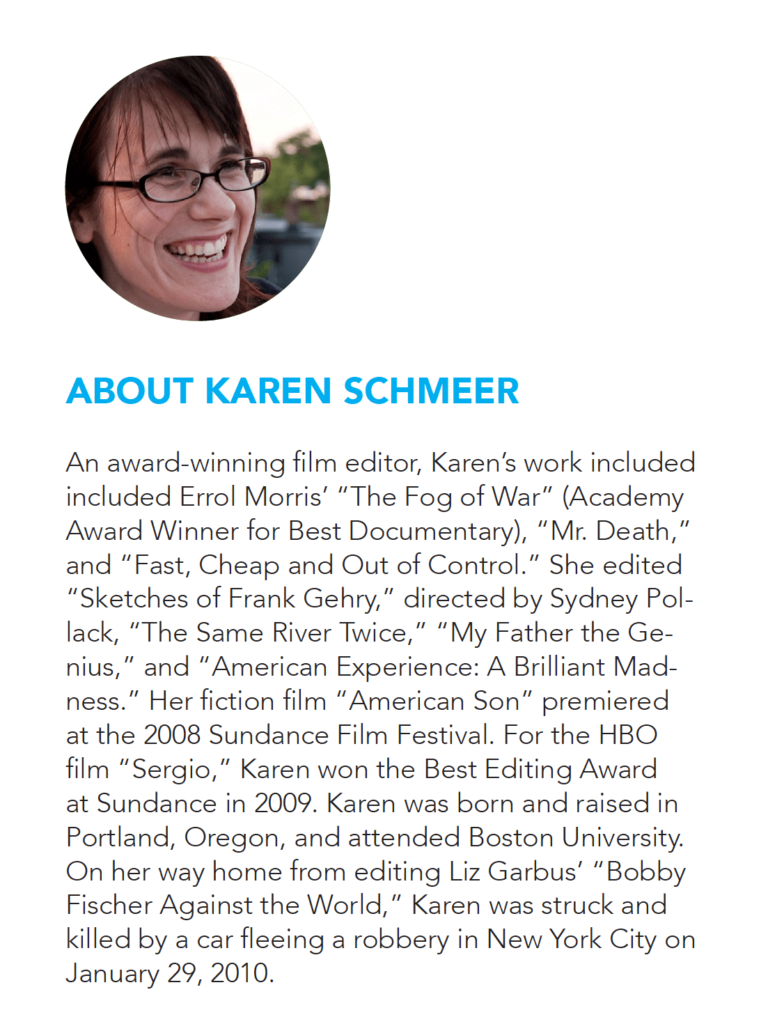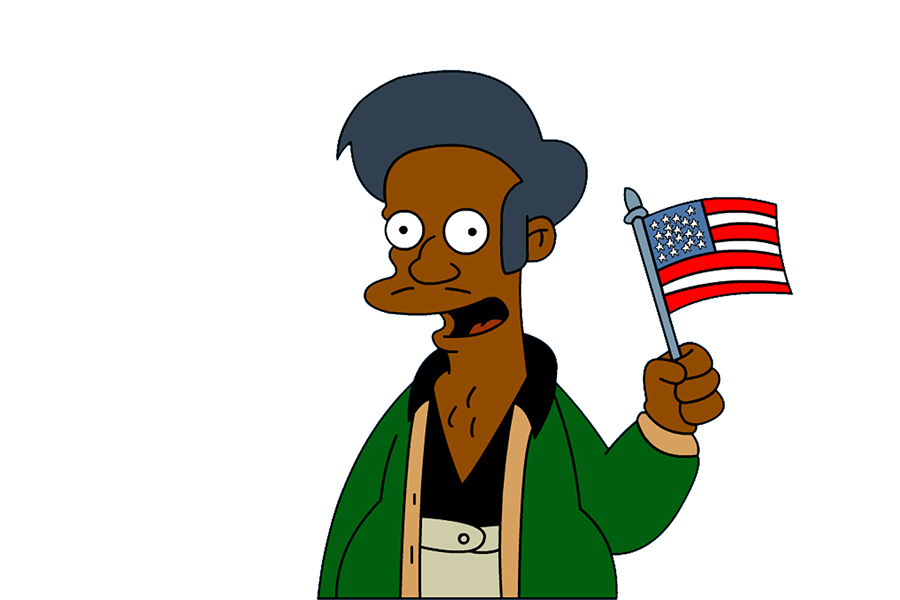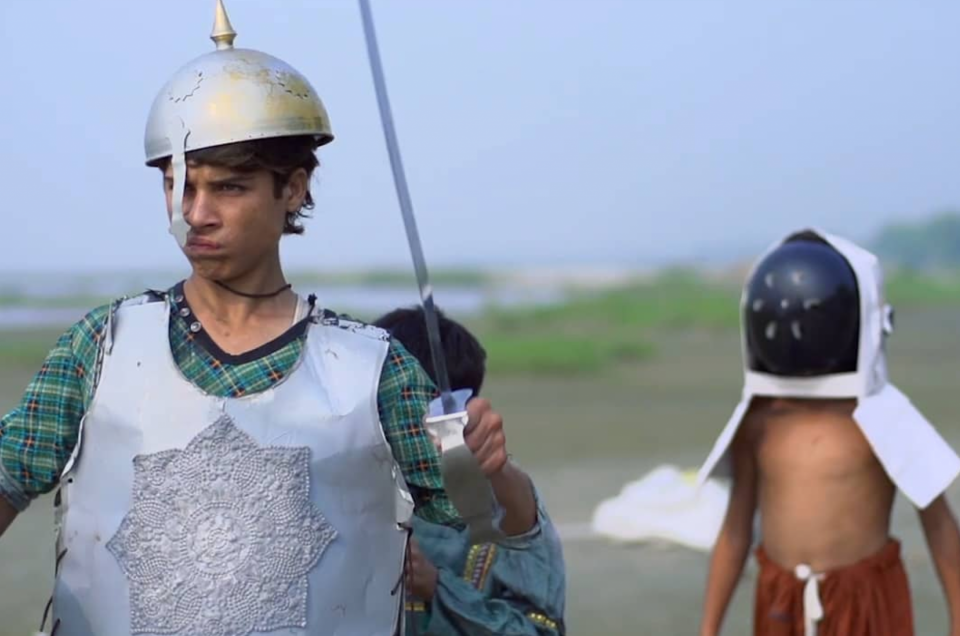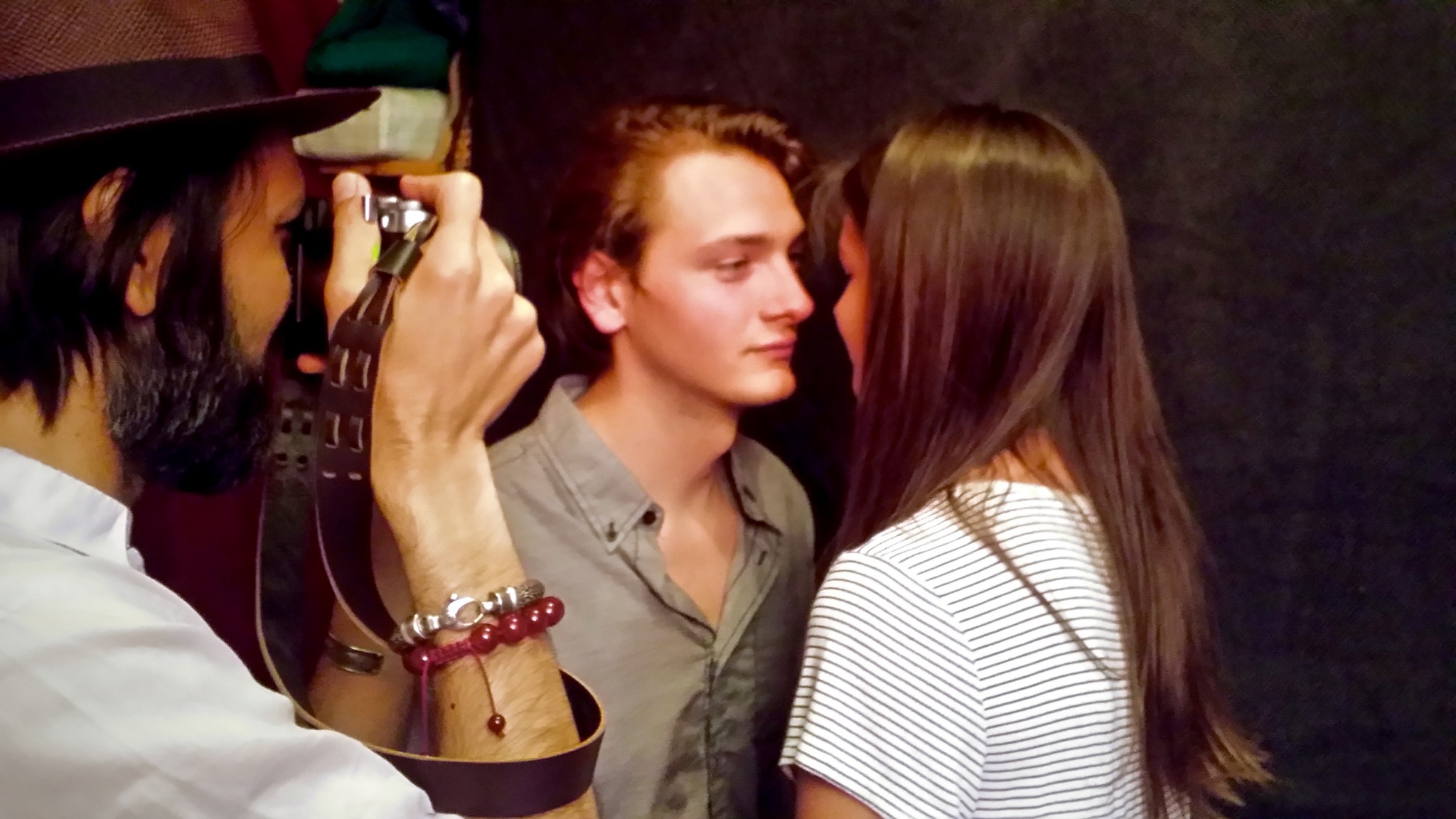“Diversity makes us better storytellers and elevates the field itself.” —Ann Kim, Karen Schmeer Film Editing Fellowship Diversity Committee Co-Chair
In 2014, I was a finalist for the Karen Schmeer Film Editing Fellowship, which was created to honor the memory of gifted editor Karen Schmeer. Awarded annually since 2010, the fellowship is a year-long experience designed to nurture the talent of an emerging documentary editor.
When applying for fellowships like this, one always has to consider: What makes me worthy of this opportunity? Why am I uniquely deserving of it? The application process forces you to dig deep, pinpoint the obstacles you’ve faced, survey your actual accomplishments and get honest about why you’d be a great candidate—then you have to articulate all that in 500 words. The challenge in my case was the big breakthrough that never came, and the elephant in the room I’d long suspected was behind my slow and laborious progression: my minority status.
While I didn’t get the fellowship that year, Garret Savage, president of the Schmeer Fellowship, and Ann Kim, KSFEF Founding Board member, remembered my submission essay and interview and invited me to apply for a new initiative this year — Diversity in the Edit Room — designed to cultivate the careers of editors and assistant editors from diverse backgrounds.
The Truth about “Diversity”
The issue of “diversity” is one that I care about deeply. I prefer to use the term “representation” because “diversity,” as it’s generally practiced, has come to mean sprinkling in a few brown and black faces to give the appearance of inclusivity while masking a perpetuation of the status quo. The unspoken claim is something like “Hey, we’re not racist! We’ve got one black guy working here!” But tokenism is not true diversity; it’s the “inclusion illusion” as Jesse Jackson once put it.
With that in mind, I wrote the following in my application for the Diversity in the Edit Room initiative:
I am frequently the only minority, the only person of color, and the only person with global experience of other cultures who is making creative decisions about a film. While I’ve encountered more decision makers with global experience these last few years, they’ve been almost exclusively white American journalists and producers from abroad who are European, and also white. Though I welcome a more informed, global perspective, what hasn’t changed is that I’m almost always the only person of color in the room.
When I look over my resume, spanning 14 years as an award-winning editor, I see just two features: one documentary, one narrative. This is not by choice. Even after I finally landed my first doc, Without Shepherds—at age 35—and it won awards, I never got the opportunity to do another, so I took the only jobs I could get: TV and commercial work. And when I look back and consider why I was hired for Without Shepherds in the first place, the truth is it had more to do with my language skills than my finesse as an editor—the film was about my country of origin, Pakistan.
“I am frequently the only minority, the only person of color, and the only person with global experience of other cultures who is making creative decisions about a film.”
This is how “diversity” currently works: it’s either about fulfilling a very specific need or, in the words of Riz Ahmed, the first South Asian actor to win an Emmy, “it’s an optional extra, a side dish, the chips but not the burger.” Like many talented, hardworking minorities, I have long been the optional extra.
Taking stock of both my career and the film/editing community at large, I’ve realized that people of color can’t wait for others to give them jobs; we must become content creators. So in the past year I’ve chosen to create and co-write a TV drama series pilot that puts minority characters on-screen in ways never seen before. One of my goals for doing this is to employ a diverse group of professionals behind the scenes, both in and out of the edit room.
Diversity in the Edit Room Initiative
I was thrilled to receive an email from the fellowship informing me that I had been selected—I would be one of 29 chosen for the inaugural Diversity in the Edit Room initiative. “We’re excited to extend the reach of our organization by supporting these talented assistant editors and editors with mentorship and public recognition,” said Ann Kim. “We believe that diversity is fundamental to the work we do as storytellers. It informs the stories we tell, the creative approaches we take, and the way we collaborate. In short, diversity makes us better storytellers and elevates the field itself.”
Each of us would be paired with a mentor, and mentors and mentees would gather for small group meetings in New York City once a month for a year to discuss creative and business aspects of the editor’s career. It seemed like a great opportunity to learn, share, network and grow both personally and professionally.
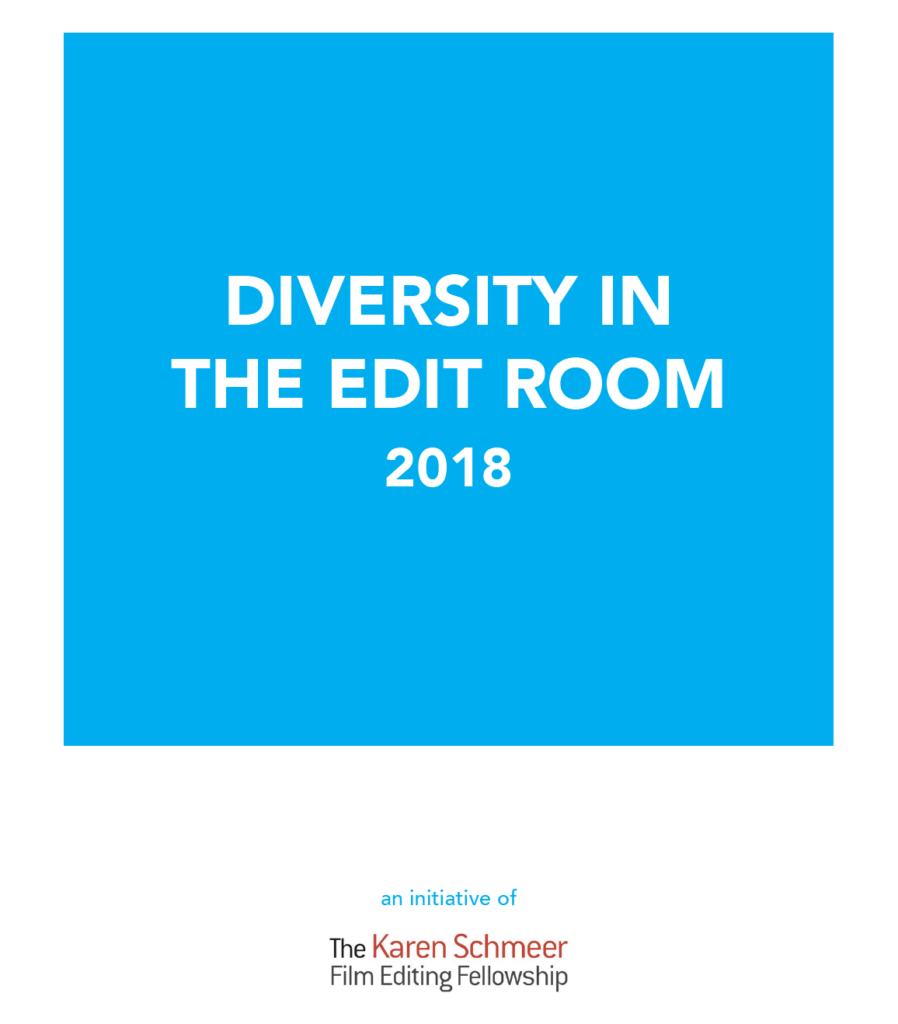
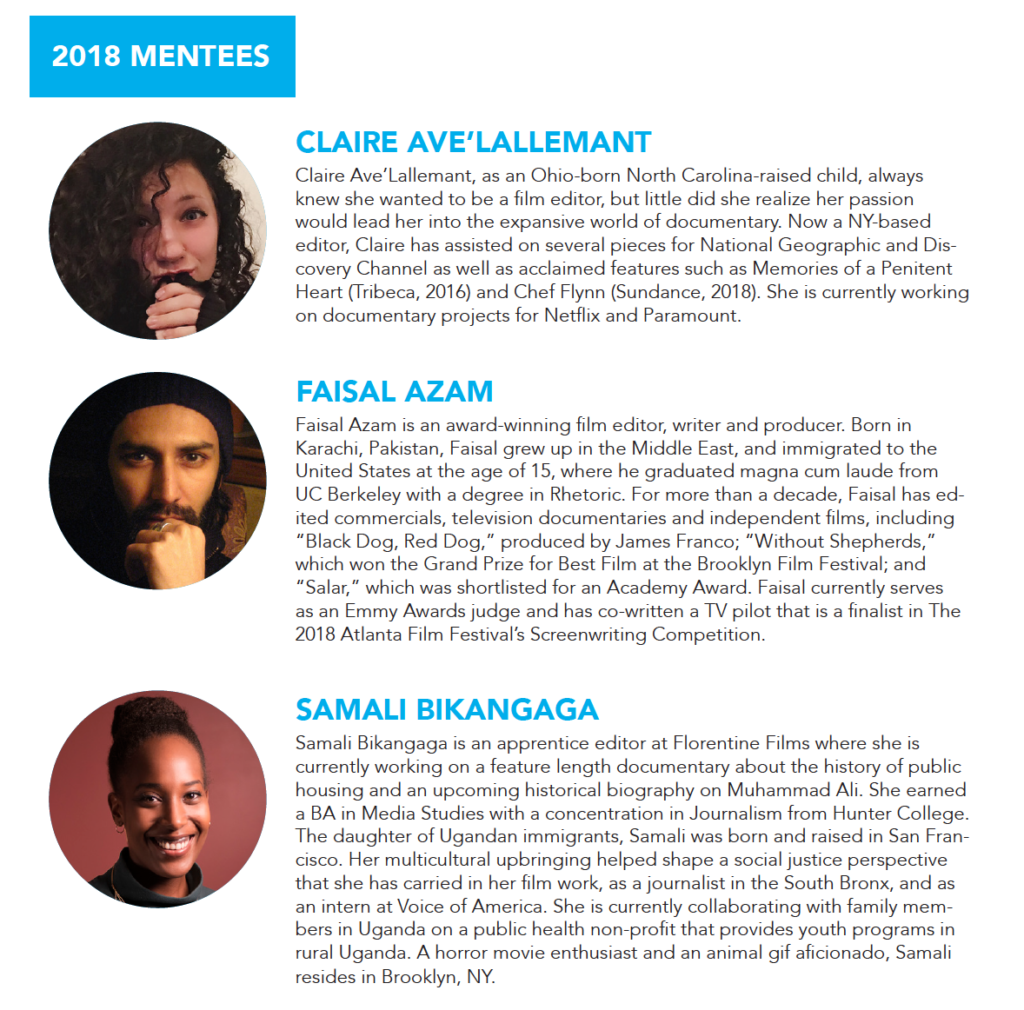
The first page of mentees, which includes my bio — see the full list here.
“It was perhaps the first time I’ve entered a room, in a professional film context, where the makeup of the group reflected the multiplicity I grew up with as a global citizen and what I see on the streets of New York City every single day.”
The Kick-off Event
Sponsored by DCTV (Downtown Community Television Center) and A&E IndieFilms, the Karen Schmeer Film Editing Fellowship held a launch party on April 23, 2018 in NYC for the 29 individuals selected for the program. Guests included diversity mentees and mentors, past and present Schmeer fellows, representatives from partner organizations, and members of the documentary community.
I found the event truly inspiring. It was perhaps the first time I’ve entered a room, in a professional film context, where the makeup of the group reflected the multiplicity I grew up with as a global citizen and what I see on the streets of New York City every single day. The inaugural mentees are an accomplished group coming from a range of backgrounds, identities and experiences, but united in that they all face barriers due to race, ethnicity, religion, socioeconomic background, disability, age, gender, sexual orientation and/or gender identity.
All photographs below were taken by Ted Willis.
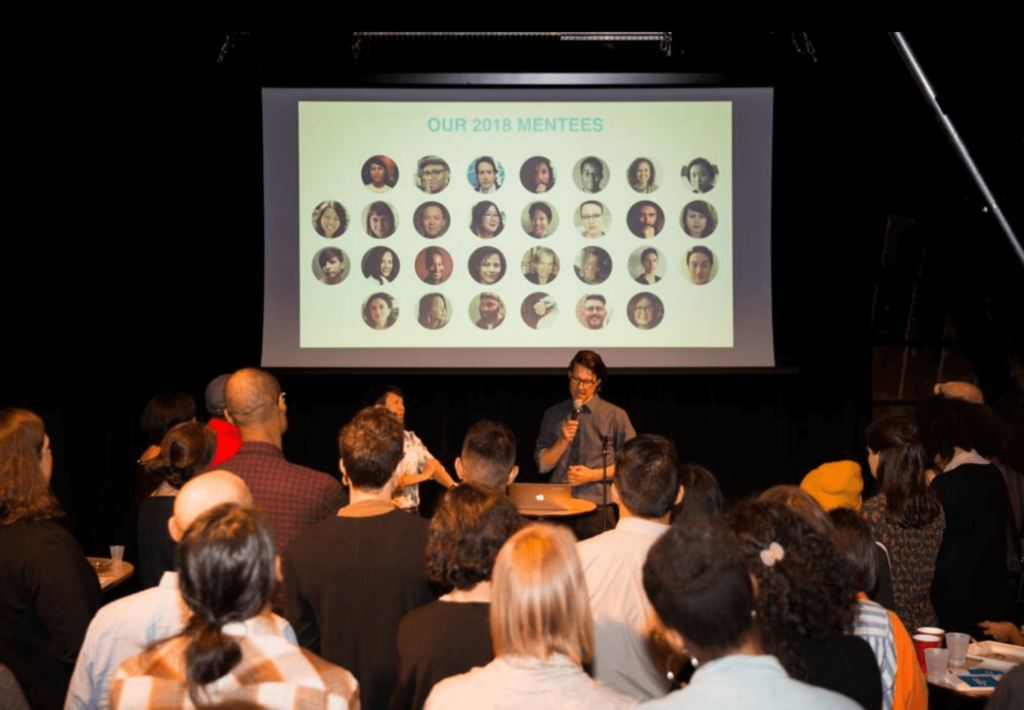
KSFEF president Garret Savage and Diversity Co-Chair Ann Kim announce the names of mentees.
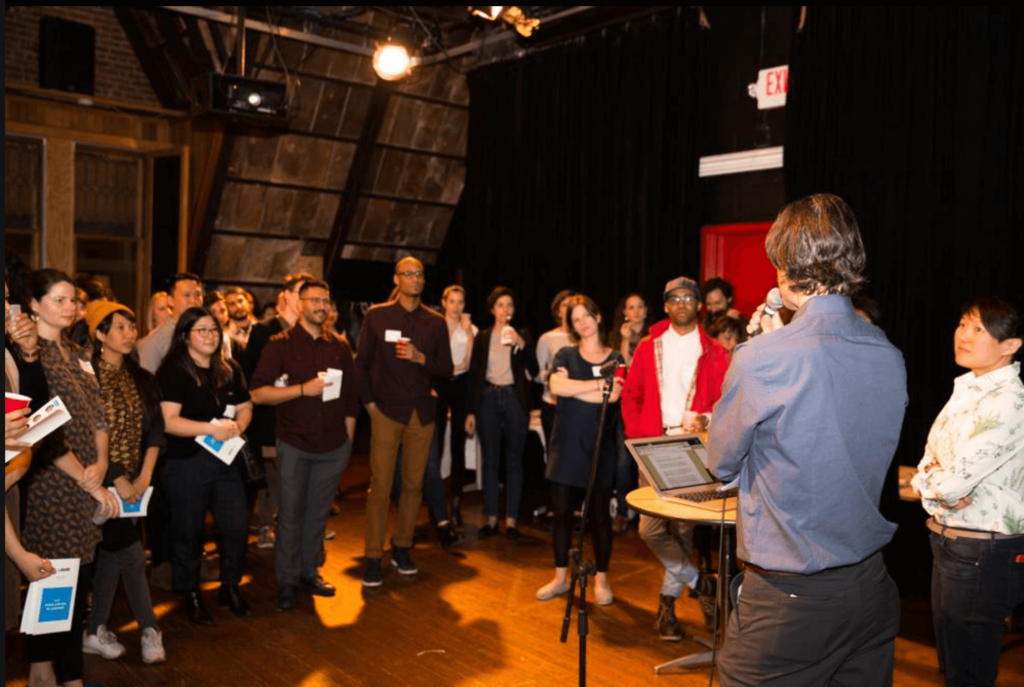
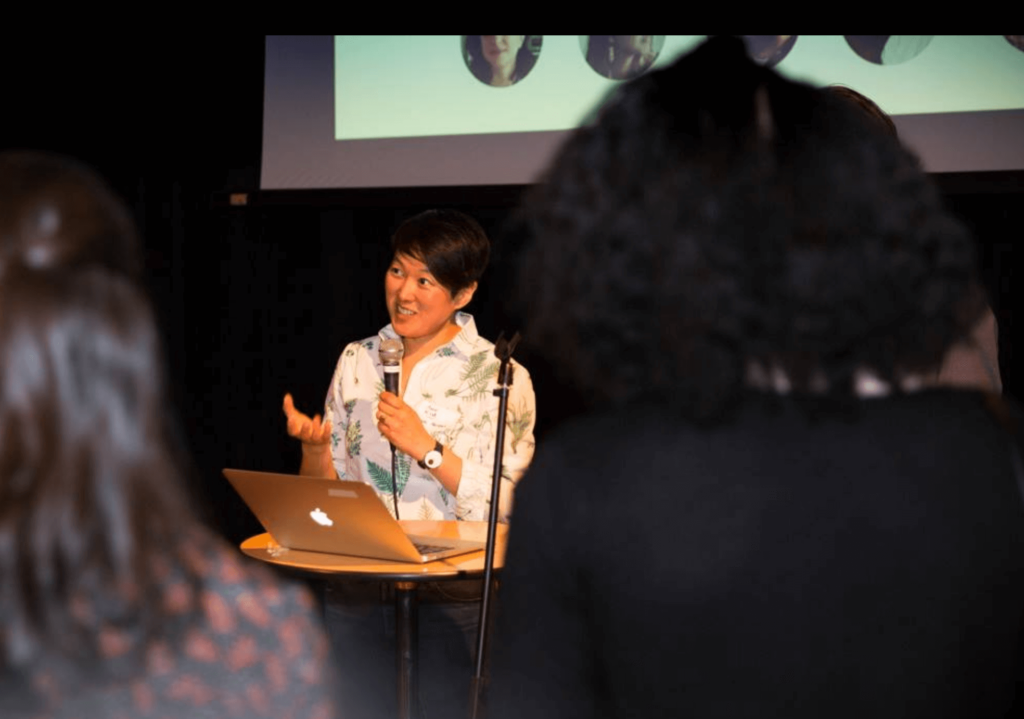
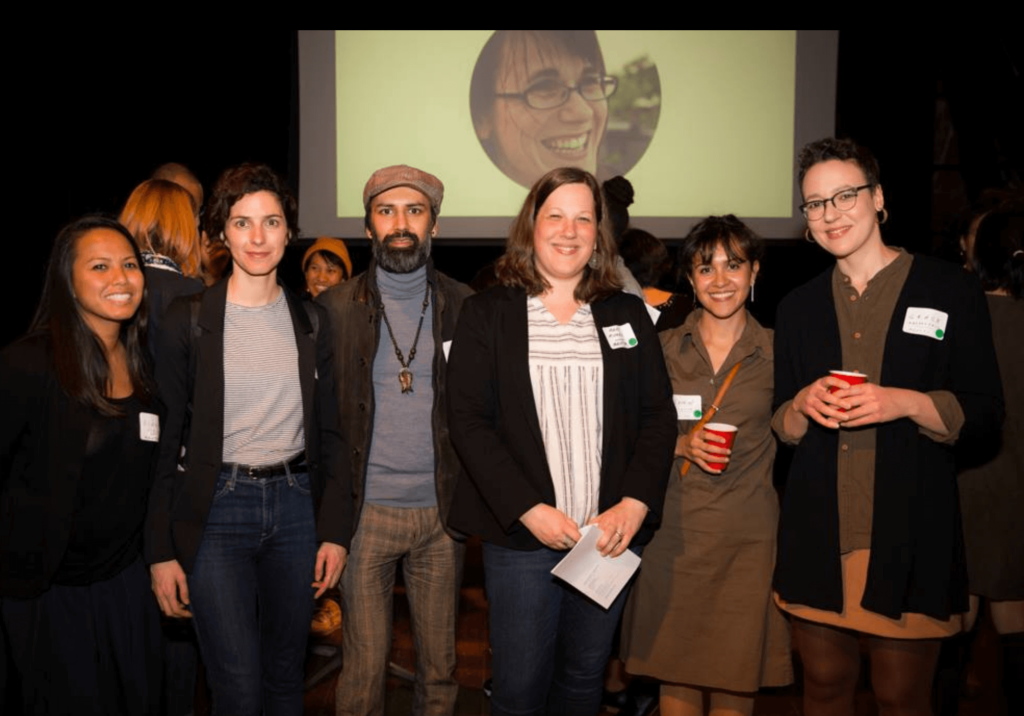
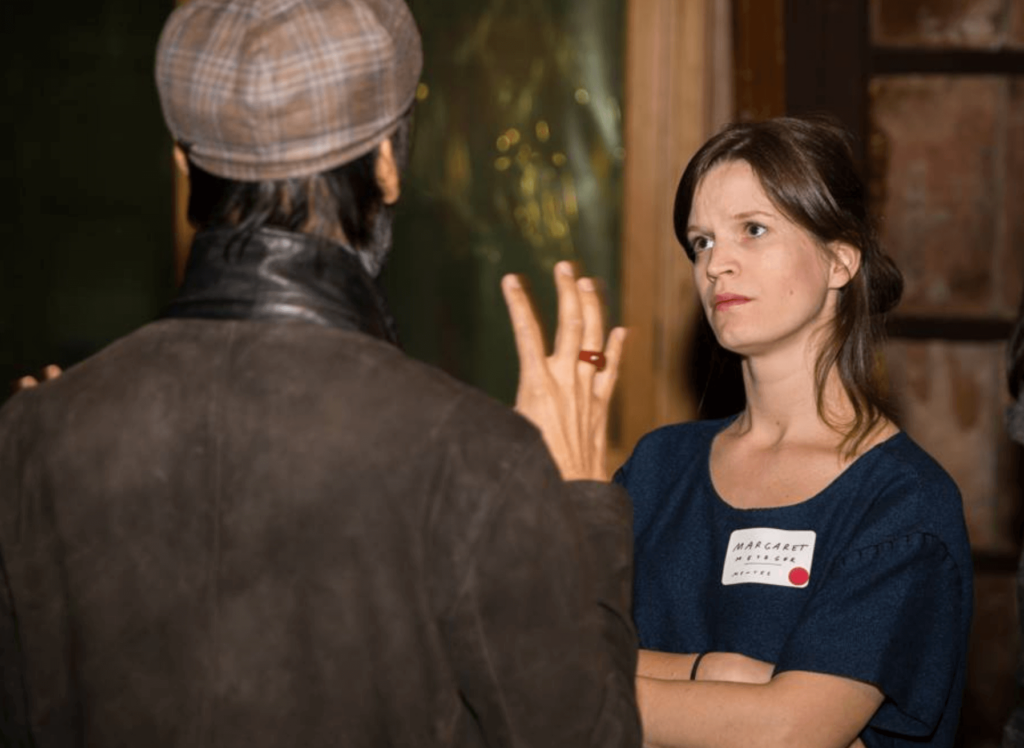
A truly diverse and accomplished group of people.
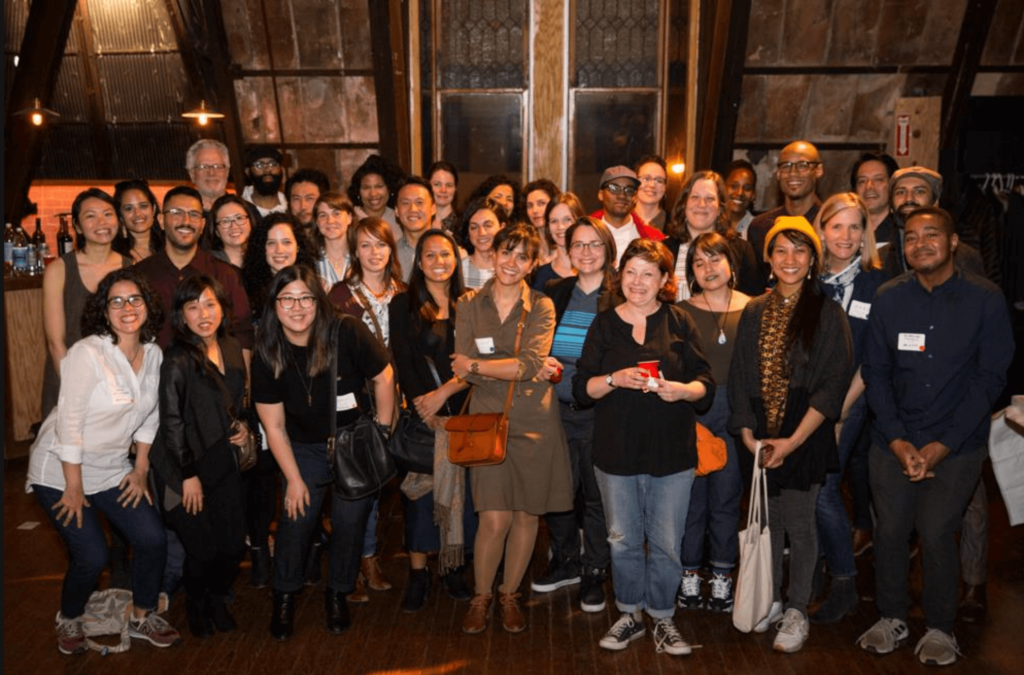
“No matter how strange or exotic her documentary subjects might seem, Karen would always find the beating hearts within them, and draw the viewer into that underlying connection.”
Remembering Karen
However, what I was most touched by was remembering Karen Schmeer, an incredibly talented editor whose life was cut short by tragedy. When Garret and Ann talked about her—and Ann got choked up just remembering her friend—it was clear that Karen’s remarkable film career was secondary. She was, first and foremost, an exceptional human being. As the About Karen section on the KSFEF website states:
Karen was a singular talent, and a singular friend. She offered so much of herself to others, whether that meant watching rough cut after rough cut for a colleague, or baking a pie to cheer up a friend in need. She cared for and was deeply moved by other people, and ultimately that was what made her work rise to the highest level. No matter how strange or exotic her documentary subjects might seem, Karen would always find the beating hearts within them, and draw the viewer into that underlying connection. She was the same as a friend. She could tell when a friend needed a phone call or a letter. She was someone who could look into a stranger’s eyes, and seeing sadness, offer words of compassion. One evening while living in New York City, Karen saw an old man walking his dog. She noticed he was crying, and gently asked him what was wrong. When the man told Karen that his wife had passed, and that he now had to walk the dog alone, Karen offered to meet the elderly gentleman each night so they could walk the dog together. And they did. In an industry of name-droppers and ladder-climbers, Karen would do neither. She never talked about her accolades; she never promoted herself. Karen was always humble. She edited films because she loved them. She kept friends and family close because she loved them too.
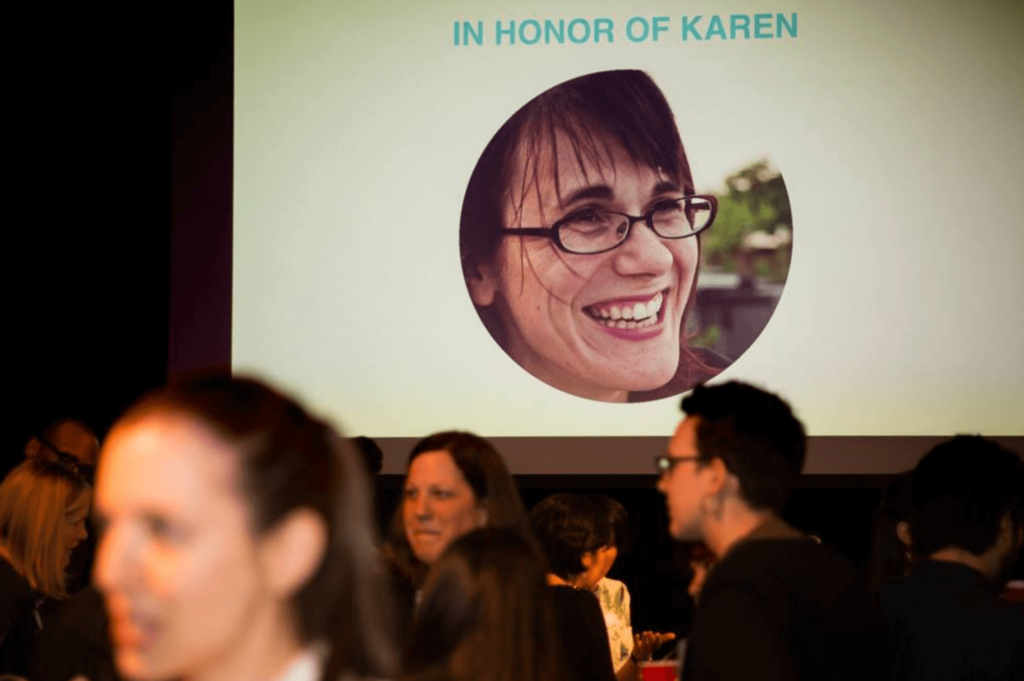
And it’s clear that her friends loved her deeply as well: They established a fellowship in her name that continues to keep her memory and spirit alive, and extends her generosity to so many who aspire to do what she did so well. I’m sad I never had a chance to know Karen but I’m honored to be part of the KSFEF family. I’m especially honored to be one of the inaugural group chosen for this initiative, and I personally will continue to emphasize the humanity within my subjects, expand the boundaries when it comes to storytelling and creativity, and champion voices that aren’t heard nearly enough.
“I’m especially honored to be one of the inaugural group chosen for this initiative, and I personally will continue to emphasize the humanity within my subjects, expand the boundaries when it comes to storytelling and creativity, and champion voices that aren’t heard nearly enough.”
